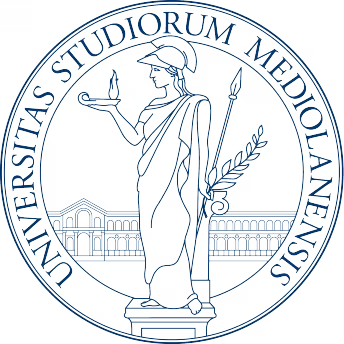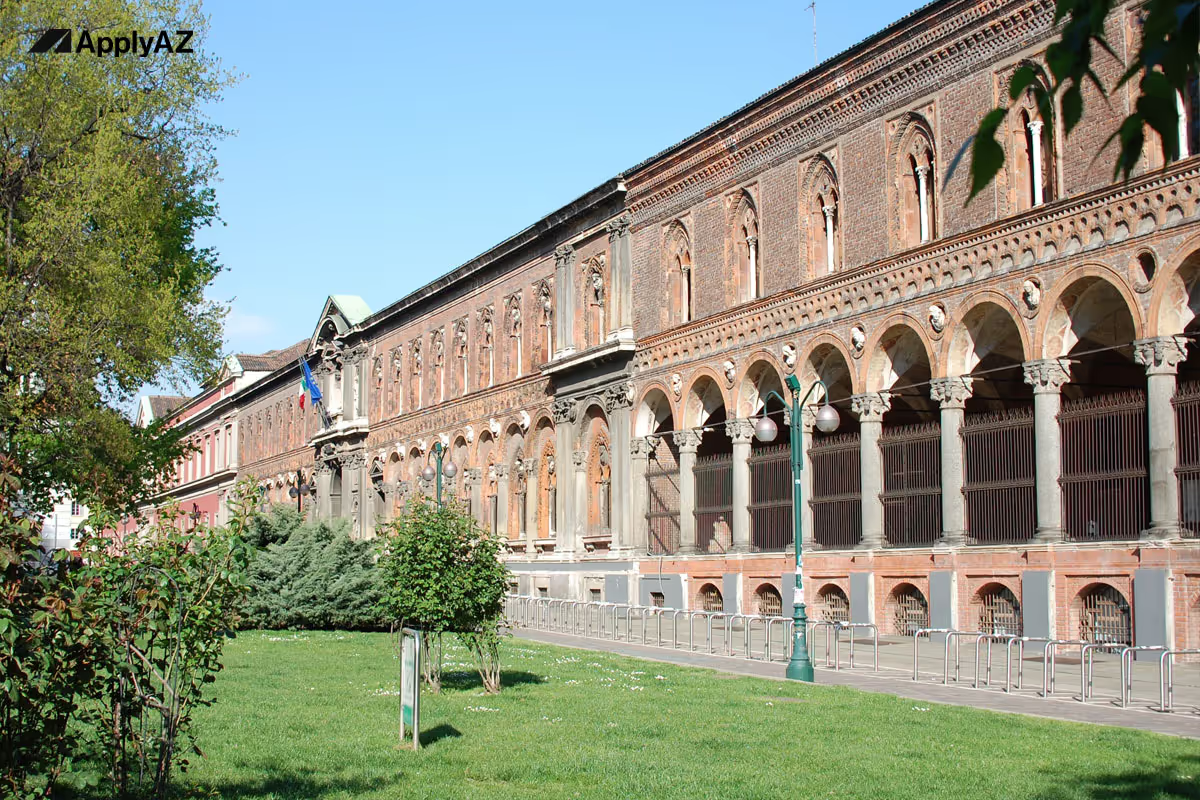Heading
Heading








University of Milan
English‑taught programs in Italy: breadth and quality
Founded in 1924, the University of Milan is a flagship among public Italian universities. It offers more than 15 full degrees entirely in English across life sciences, data science, economics, law, and the humanities. Small‑group seminars, modern laboratories, and research‑led teaching earn the university a consistent place in global top‑200 rankings for medicine, biology, and physics. Academic life blends lectures with project work and Erasmus+ exchanges, giving you both depth and international exposure.
Life in Milan: culture, costs, connections
Milan pairs Renaissance architecture with Europe’s fastest‑growing innovation district. Four metro lines, trams, and regional trains keep average commutes under 35 minutes, while student passes cut transport costs by half. Cafés stay open late for study sessions; world‑class music, design fairs, and football derbies fill weekends. Rents start around €400 per month in shared flats—pricey for Italy, but offset by campus dining at €4 per meal and the chance to share expenses with classmates.
Funding advantages: DSU grant and other support
As a state institution, Milan charges income‑linked tuition that ranges from €156 to roughly €3 000 per year. International students can apply for the DSU grant, which may waive tuition entirely and add a €7 000 living allowance, residence‑hall place, and meal vouchers. Merit scholarships reward top GPAs, and research assistant roles provide paid experience. With these tools, many graduates finish their master’s with little or no debt, mirroring the affordability of tuition‑free universities Italy promotes.
Career gateways in a global city
Milan is home to Italy’s stock exchange and to headquarters of companies such as IBM, Luxottica, and Nestlé. University partnerships cover more than 4 000 firms, feeding internships in finance, biotech, fashion tech, and AI start‑ups. Career Services run résumé labs, mock interviews, and on‑campus job fairs; 87 % of international graduates secure work or PhD places within seven months. Language tandems, alumni mentoring, and professional certification courses (Prince2, CFA Level I, Lean Six Sigma) further boost employability.
Five key takeaways
- Wide portfolio of English degrees backed by strong research.
- Dynamic metropolitan lifestyle with rich art and sport.
- Income‑based fees plus DSU grant make study highly affordable.
- Direct pipelines to internships and high‑growth careers.
- Supportive campus: libraries until midnight, 100+ clubs, free fitness classes.
In two minutes we’ll confirm whether you meet the basic entry rules for tuition‑free, English‑taught degrees in Italy. We’ll then quickly see if we still have space for you this month. If so, you’ll get a personalised offer. Accept it, and our experts hand‑craft a shortlist of majors that fit your grades, goals, and career plans. Upload your documents once; we submit every university and scholarship application, line up multiple admission letters, and guide you through the visa process—backed by our admission‑and‑scholarship guarantee.
Finance and Economics – LM‑16
Studying in Italy in English lets you earn a respected European degree without mastering Italian first. Within the first lectures you will notice how English‑taught programs in Italy attract learners from every continent, how public Italian universities foster open debate, and how tuition‑free universities Italy supports through state aid keep costs low. The Finance and Economics master’s (LM‑16) at University of Milan (Università degli Studi di Milano) ticks all the boxes: rigorous theory, practical data skills, and access to scholarships for international students in Italy—including the indispensable DSU grant.
1. Why Choose to Study in Italy in English?
English‑speaking degrees in Italy blend centuries of academic tradition with modern analytical tools. Here is why this route stands out:
- Top‑tier quality for a modest fee
State‑regulated tuition keeps study affordable, and financial support can reduce costs to zero. - A global learning environment
Classrooms mix backgrounds from finance hubs like Lagos, São Paulo, and Singapore, giving you a network that spans the world. - Practical exposure
Professors invite guest analysts from European Central Bank projects and multinational corporations, turning lectures into career previews.
2. Programme Overview: Finance and Economics LM‑16
This two‑year master’s weaves advanced economic theory with quantitative finance. Graduates leave fluent in data analytics, risk management, and policy evaluation—skills that employers value in markets, ministries, and multilateral agencies.
Learning pillars
- Micro‑ and macro‑economic analysis
- Financial markets and instruments
- Econometrics and big‑data methods
- Policy design and evaluation
- Ethics and sustainable finance
Projects integrate theory and practice, from valuing derivatives in Python to assessing fiscal stimulus effects with panel regressions.
3. Year‑by‑Year Curriculum
Year 1: Core Foundations
- Advanced Microeconomics – game theory, information economics, and strategic behaviour.
- Macroeconomic Dynamics – growth models, business cycles, and monetary policy.
- Financial Mathematics – stochastic processes and asset pricing.
- Econometrics I – regression, hypothesis testing, and model diagnostics.
- Corporate Finance – capital structure, dividend policy, and IPO analysis.
Year 2: Specialisation and Integration
- Econometrics II & Machine Learning – time series, panel data, and predictive algorithms.
- International Finance – exchange‑rate models, open‑economy macro, and hedging strategies.
- Behavioral Economics & Finance – cognitive biases, market anomalies, and policy nudges.
- Risk Management – credit risk, Value‑at‑Risk, and stress testing.
- Electives – choose fintech regulation, sustainable investing, or development economics.
- Thesis Project – an original study under faculty supervision, often linked to an internship.
4. Teaching Style: Data‑Driven and Interactive
Lectures move quickly from concept to application:
- Live coding sessions demonstrate econometric models in R and Python.
- Trading simulations replicate market conditions, letting you manage a virtual portfolio.
- Policy labs task teams with solving fiscal or monetary dilemmas using real‑time datasets.
- Guest talks feature central‑bank economists, hedge‑fund analysts, and sustainability officers.
These experiences ensure you graduate with both analytical muscle and communication flair.
5. Core Skills You Will Build
- Quantitative analysis – clean, model, and interpret large financial datasets.
- Strategic decision‑making – weigh trade‑offs in corporate and policy contexts.
- Programming competence – write scripts for valuation, forecasting, and optimisation.
- Research literacy – critique academic literature and design empirical studies.
- Ethical insight – evaluate ESG (environmental, social, governance) risks in finance.
Such abilities translate across roles, making you agile in fast‑evolving markets.
6. Careers After Graduation
Financial institutions
- Investment banking analyst
- Risk or portfolio manager
- Quantitative trader
Policy and development
- Economist at central banks or ministries
- Analyst in multilateral organisations (IMF, World Bank)
- Researcher in think tanks
Corporate sector
- Treasury or corporate strategy associate
- ESG reporting specialist
- Fintech product manager
Academia and research
- PhD track in economics or finance
- Data scientist in research consultancies
Employers increasingly seek professionals who can interpret data, draft policy, and anticipate market shifts—precisely what LM‑16 trains you to do.
7. University of Milan (Università degli Studi di Milano)
As one of the most respected public Italian universities, the University of Milan offers:
- Research excellence – faculty publish in top journals and lead EU‑funded projects.
- Cutting‑edge resources – Bloomberg terminals, high‑performance computing labs, and extensive databases.
- Career services – CV clinics, interview prep, and networking events with banks and consultancies.
- Vibrant community – finance clubs, coding bootcamps, and case‑competition teams.
8. Funding Your Studies: DSU Grant and More
Scholarships for international students in Italy
Several merit‑based awards target top candidates in economics and finance. Deadlines vary—plan early.
DSU grant highlights
- Tuition waiver – often eliminates fees entirely.
- Housing and meals – dorm placement or rent subsidies with meal vouchers.
- Book and travel allowances – lighten incidental costs.
Ready for this programme?
If you qualify and we still have a spot this month, we’ll reserve your place with ApplyAZ. Our team will tailor a set of best-fit majors—including this course—and handle every form and deadline for you. One upload, many applications, guaranteed offers, DSU grant support, and visa coaching: that’s the ApplyAZ promise. Start now and secure your spot before this month’s intake fills up.

They Began right where you are










